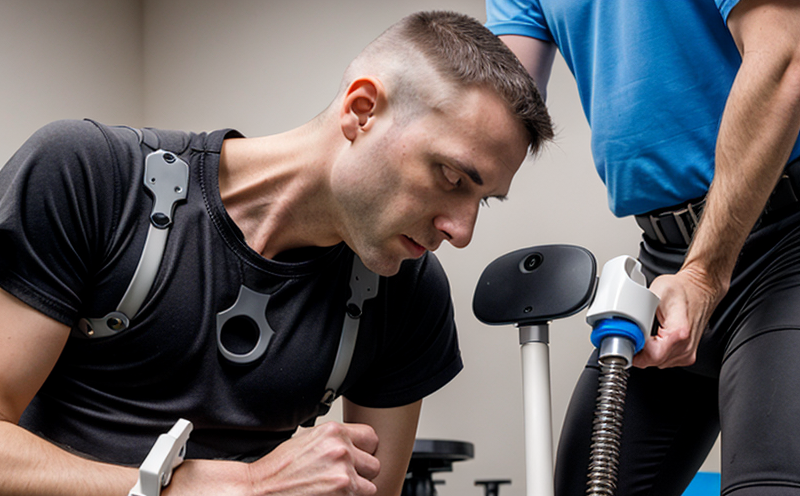IEC 60601-1-2 EMC Testing for Active Prosthetic Devices
The IEC 60601 series of standards is a cornerstone in ensuring the safety, effectiveness, and quality of medical devices. Among these, IEC 60601-1-2 specifically addresses the electromagnetic compatibility (EMC) testing requirements for active medical electrical equipment (MEE), including orthopedic and prosthetic devices.
This standard ensures that such devices function as intended in their intended environments without causing harmful interference to other electronic systems. In the context of active prosthetic devices, this is critical, as these devices are often worn for extended periods and may be exposed to various electromagnetic fields. Proper EMC testing helps ensure the safety and reliability of active prostheses, which can directly impact patient health and well-being.
The scope of IEC 60601-1-2 includes both conducted and radiated emissions, as well as immunity requirements for MEE. This ensures that devices do not emit excessive electromagnetic interference (EMI) and are robust enough to withstand the electromagnetic environment in which they operate. The testing protocols are designed to cover a wide range of potential real-world scenarios, ensuring comprehensive validation.
When considering IEC 60601-1-2 testing for active prosthetic devices, it is important to understand the specific requirements and challenges. Active prostheses often incorporate advanced electronics, such as sensors, processors, and communication modules, which can make them more susceptible to EMI than simpler medical devices. Therefore, thorough EMC testing is essential to ensure that these devices perform reliably in their intended environments.
In summary, IEC 60601-1-2 EMC testing for active prosthetic devices is a critical step in the product development lifecycle. It ensures that these devices meet the stringent safety and performance requirements set forth by international standards, which can ultimately lead to safer and more reliable medical solutions.
Applied Standards
| Standard Number | Description |
|---|---|
| IEC 60601-1-2:2014 | Electromagnetic compatibility (EMC) requirements for medical electrical equipment and systems - Part 1-2: Special conditions for active implantable medical devices. |
| IEC 60601-1-8:2015 | Electromagnetic compatibility (EMC) requirements for medical electrical equipment and systems - Part 1-8: General requirements for safety and performance of time-varying electromagnetic fields. |
| IEC 60601-1-4:2013 | Electromagnetic compatibility (EMC) requirements for medical electrical equipment and systems - Part 1-4: Requirements for immunity to conducted disturbances. |
Benefits
- Ensures compliance with international standards, which is crucial for market entry in global markets.
- Maintains the reliability and performance of active prosthetic devices under various electromagnetic environments.
- Reduces the risk of product failures due to interference from external electromagnetic sources.
- Promotes patient safety by ensuring that medical devices function correctly without causing harm or interference.
- Aids in regulatory approval processes, making it easier for manufacturers to meet regulatory requirements.
Eurolab Advantages
EuroLab is a leading provider of testing and certification services for medical device manufacturers. Our expertise in IEC 60601-1-2 EMC testing ensures that we can provide comprehensive support to our clients, covering all aspects of the testing process.
- State-of-the-art facilities equipped with cutting-edge instrumentation and equipment tailored specifically for testing active prosthetic devices.
- A team of highly qualified engineers and technicians who are experienced in interpreting the requirements of IEC 60601-1-2 and providing expert guidance throughout the testing process.
- Access to a wide range of test environments that simulate real-world conditions, ensuring thorough validation of device performance.
- A commitment to quality and accuracy, with strict adherence to international standards and protocols.
We understand the unique challenges faced by medical device manufacturers in ensuring compliance with IEC 60601-1-2. Our services are designed to help you navigate these challenges effectively, providing you with the confidence that your products meet all necessary requirements.





